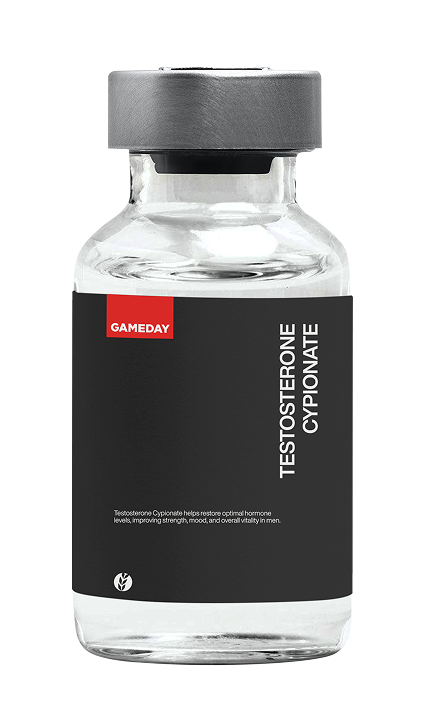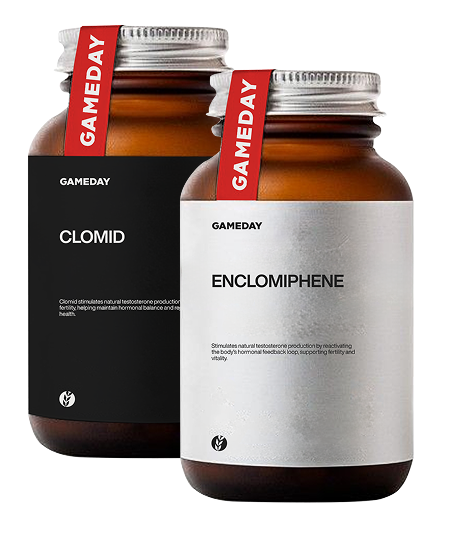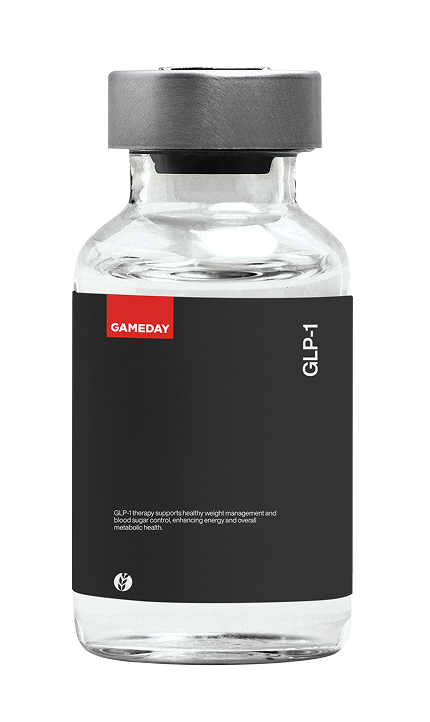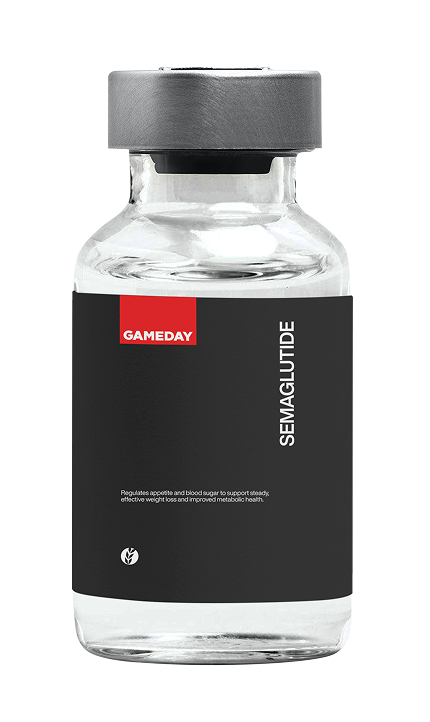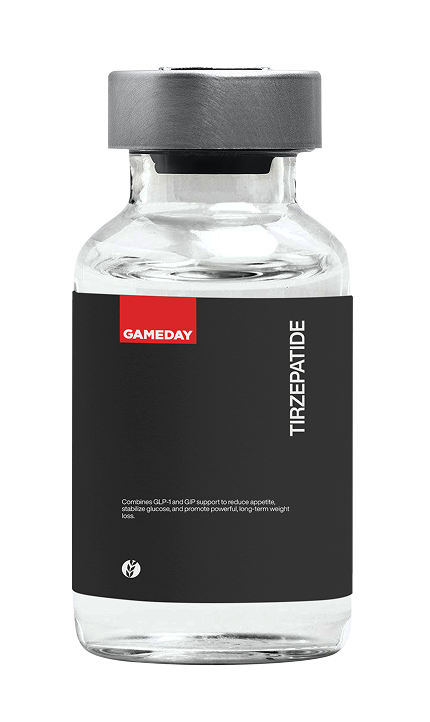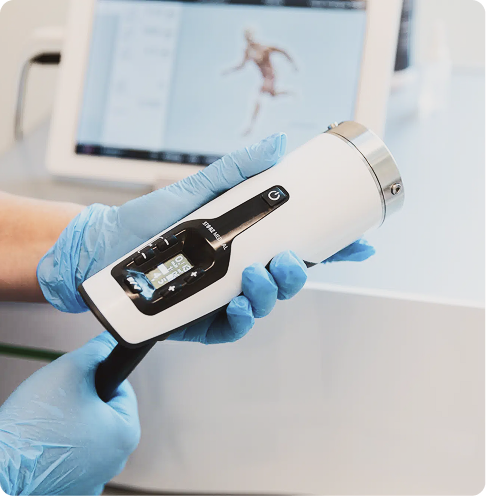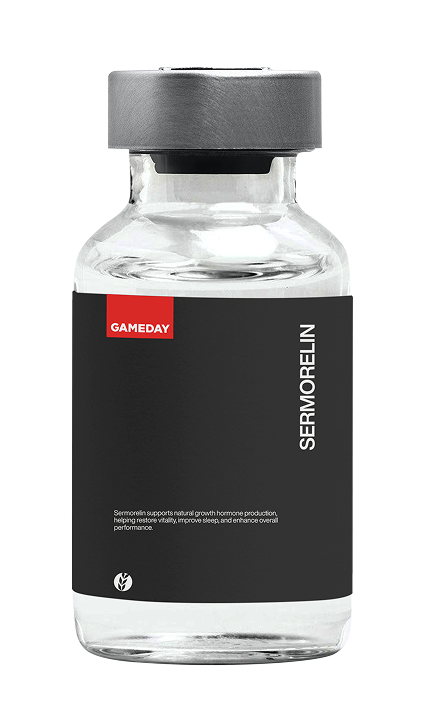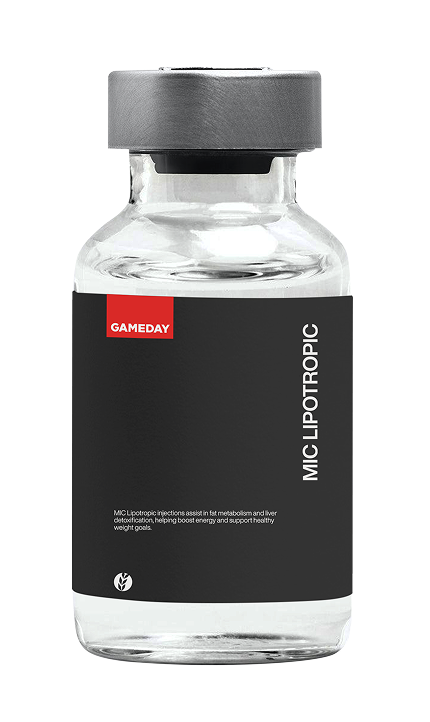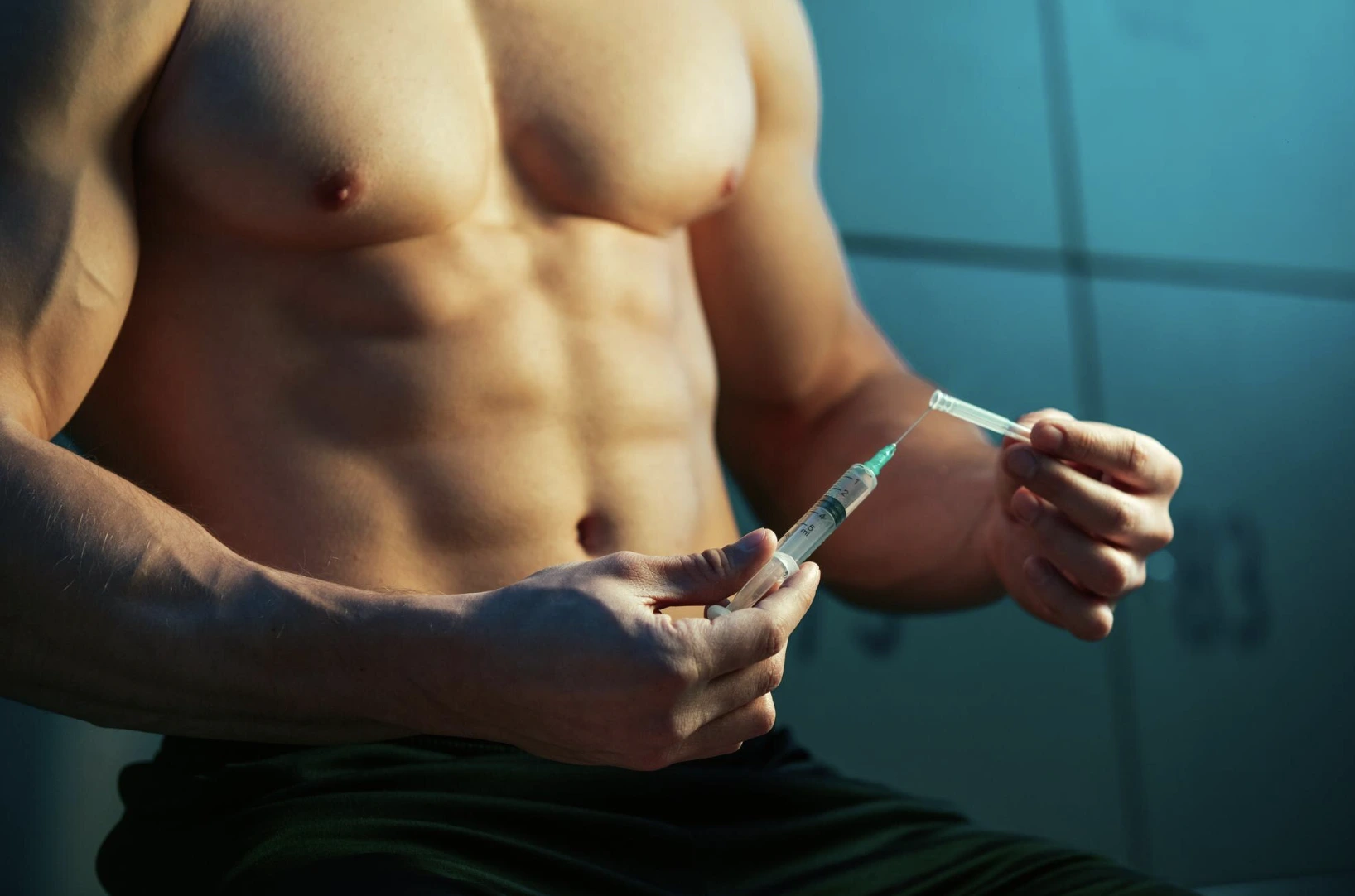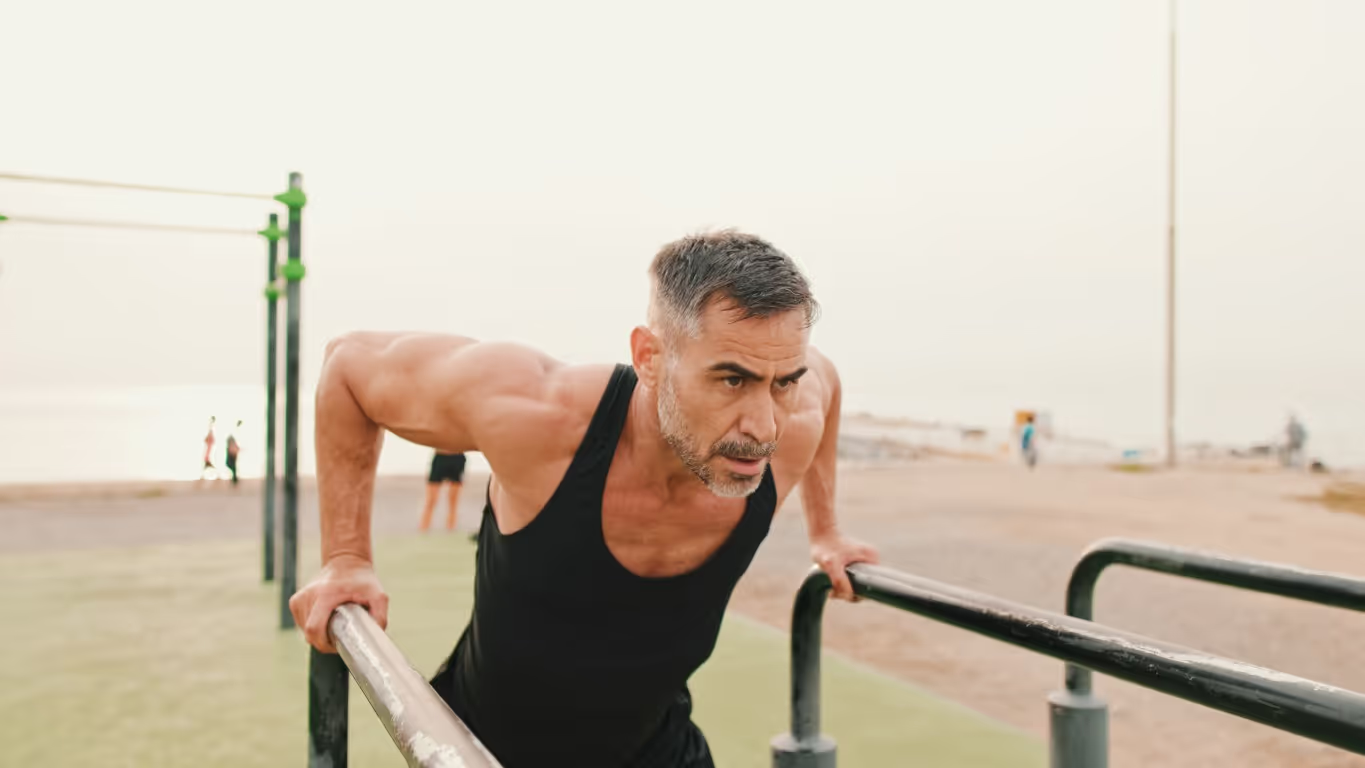For millions of men, consuming caffeine is part of a daily ritual. In fact, some research suggests that nearly 80% of the world’s population consumes caffeine daily. (1)
Whether it’s your morning cup of coffee, an energy drink before work, or a pre-workout shot before the gym, caffeine has become a go-to source of focus and drive. It helps you wake up, power through long days, and perform your best in workouts.
But there’s an ongoing question that men must consider when having their daily drip: Does caffeine intake affect testosterone? Some men worry their daily coffee might lower testosterone, while others believe it can actually enhance energy, strength, and performance by boosting hormone levels.
The truth is more nuanced. Caffeine can affect hormone balance in several ways, depending on how much you consume, how often, and how your body responds.
In this guide, we’ll examine how caffeine works in the body, its potential effects on testosterone levels, and how you can consume caffeine responsibly.
How Caffeine Works in the Body
Caffeine is a natural stimulant found in coffee, tea, chocolate, energy drinks, and some supplements. When you consume caffeine, it quickly enters your bloodstream and travels to the brain, where it blocks adenosine, a neurotransmitter that promotes relaxation and sleepiness. By blocking adenosine, caffeine increases alertness and reduces fatigue by increasing dopamine and norepinephrine activity. (2)
This stimulating effect also triggers the release of adrenaline, a hormone responsible for the body’s “fight or flight” response. Adrenaline boosts energy, sharpens focus, and enhances physical performance. That is one reason caffeine is often used in pre-workout supplements and athletic performance enhancers.
However, this surge in energy also increases cortisol, the body’s primary stress hormone. Cortisol serves essential functions in moderation, but chronically high levels can disrupt testosterone production and recovery. (3) Since chronically elevated cortisol can interfere with testosterone production, consistently elevated cortisol may lead to lower testosterone over time.
Beyond its hormonal effects, caffeine influences other important aspects of health, including sleep, hydration, and nutrient absorption — all of which indirectly affect testosterone balance.
What Research Says About Caffeine and Testosterone
Research indicates that the relationship between caffeine and testosterone varies depending on dosage, timing, and individual physiology.
Some short-term studies suggest caffeine may temporarily boost testosterone levels, especially during or after exercise. For example, one study showed that rugby players who consumed caffeine before resistance training saw a testosterone increase of at least 15%. (4)
However, other studies show that chronic or excessive caffeine consumption could have the opposite effect. Consistently high doses can elevate cortisol, increase anxiety, and interfere with sleep, all of which are factors known to reduce testosterone production long-term. (5)
Several mechanisms may explain these conflicting results, including:
- Acute stimulation: Caffeine boosts adrenaline and dopamine, which may temporarily influence testosterone levels.
- Cortisol interference: Prolonged high caffeine intake can raise stress hormone levels that may suppress testosterone levels.
- Sleep and recovery impact: Caffeine’s stimulating effect may delay sleep onset and lower sleep quality, reducing the nightly testosterone surge that occurs during deep rest.
- Individual variation: Genetics, metabolism, age, and overall lifestyle strongly influence how caffeine affects hormone balance. (6)
Put simply, caffeine’s effect on testosterone depends on context. A moderate amount taken strategically before a workout may offer a short-term boost, while constant overuse or poor sleep habits may have the opposite effect.
How Caffeine Can Indirectly Influence Testosterone
Even if caffeine does not directly lower testosterone, it can impact hormones that regulate your energy, recovery, and vitality. Here are four ways caffeine indirectly influences testosterone levels and overall hormone health:
Sleep Disruption
Caffeine has a half-life of several hours, meaning it can remain active in your system long after consumption. Because of this, drinking coffee or energy drinks too late in the day can interfere with deep sleep cycles. Since testosterone production peaks during the early morning hours of sleep, disrupted rest can lower overall levels over time.
Stress Response
Caffeine increases cortisol, which can lead to you feeling more alert and focused, but excessive or constant consumption can keep stress hormones elevated. Chronically high cortisol levels can reduce testosterone synthesis in the testes and contribute to fatigue, irritability, and slower recovery. (7)
Exercise Performance
On the positive side, moderate caffeine intake can improve endurance, focus, and strength, all of which can enhance training quality which can therefore improve muscle mass and athletic performance. Regular physical activity is one of the best natural ways to keep hormone levels healthy, and caffeine can enhance workout quality when used wisely.
Hydration and Recovery
Caffeine acts as a mild diuretic, which can increase fluid loss. Staying hydrated and replenishing electrolytes can help offset this effect and maintain optimal recovery.
Does Caffeine Lower Testosterone?
The short answer is that standard caffeine consumption is unlikely to lower testosterone in healthy men. Research consistently shows that drinking a moderate amount of caffeine in a day does not significantly impact hormone levels in most adults. (8)
However, problems may arise when caffeine intake becomes excessive or disrupts other aspects of your health. For instance, regularly consuming large doses of caffeine, such as multiple energy drinks or strong pre-workouts daily may raise cortisol and affect sleep quality. Over time, this can contribute to hormonal imbalance, including reduced testosterone.
The key to maintaining a healthy balance is moderation. Caffeine can be part of a balanced lifestyle if used responsibly. It can even support performance, focus, and fat metabolism when timed properly. Alternatively, having too much of it, especially in combination with poor sleep or high stress, can have the opposite effect.
How to Use Caffeine Responsibly for Hormone Health
As we’ve discussed, caffeine can be a useful tool for boosting alertness and improving performance when used thoughtfully. Following these practical tips can help you protect your hormone balance while still enjoying caffeinated beverages:
- Limit caffeine to the early part of the day to avoid disrupting sleep.
- Keep total daily intake below 400 mg (roughly equivalent to four 8-ounce cups of coffee), the amount recommended by the FDA. (9)
- Avoid excessive intake of energy drinks or pre-workout supplements that combine caffeine with other stimulants.
- Stay hydrated and maintain a balanced diet rich in zinc, magnesium, and healthy fats that support testosterone production.
Monitoring how your body responds to caffeine is crucial. Some men may be more sensitive to caffeine and may notice increased anxiety or trouble sleeping even with moderate use. If caffeine consistently causes anxiety, jitteriness, or interferes with sleep, consider reducing your intake or switching to lower-caffeine alternatives such as green tea.
When to Get Your Testosterone Levels Checked
If you’ve been feeling unusually fatigued, experiencing low libido, or noticing a decline in muscle mass or motivation, it might be time to check your testosterone levels. While caffeine can influence how you feel day-to-day, persistent symptoms usually point to a deeper hormonal imbalance.
Getting your testosterone tested provides clarity on whether your levels are within a healthy range or if additional support is needed, such as testosterone replacement therapy. Many men are surprised to learn how lifestyle factors like sleep, nutrition, and stress management influence their hormone profile.
At Gameday Men’s Health, testosterone testing is simple, accurate, and tailored to your specific needs. Our team evaluates your hormone levels through comprehensive blood testing and provides tailored treatment options designed to restore balance and vitality.
Why Choose Gameday Men’s Health
Gameday Men’s Health specializes in helping men optimize their hormones, energy, and overall well-being. Our clinics provide a comfortable, male-focused professional setting where you can get expert guidance on treatments like testosterone replacement therapy, peptide treatments, vitamin injections, and other wellness solutions.
We take a holistic approach that includes evaluating lifestyle factors such as nutrition, exercise, and stress management, which are all key components of healthy testosterone production. Whether you are dealing with fatigue, low motivation, erectile dysfunction, increased body fat, or decreased performance, our clinicians can help you identify the root cause and create a plan that fits your goals.
With convenient testing, personalized care, and ongoing support, Gameday Men’s Health is the trusted partner for men who want to feel and perform at their best.
The Bottom Line About Caffeine and Testosterone
When it comes to caffeine and testosterone, it’s essential to remember that moderation and timing are key. When used smartly, caffeine can help boost alertness and performance in the office or at the gym. However, when overused, it can elevate stress hormones and disrupt sleep quality, which can indirectly contribute to hormonal imbalance.
Understanding your personal tolerance, planning caffeine intake strategically, and prioritizing overall health habits can help you enjoy the taste and benefits of caffeine without experiencing negative effects.
If you’re curious about where your testosterone levels stand, or if you’re seeking more information on how lifestyle habits like caffeine intake, diet, and exercise are influencing your health, contact your local Gameday Men’s Health clinic to schedule a consultation. Our expert team can help you take control of your hormone health, boost your energy, and get back to feeling like yourself again.



